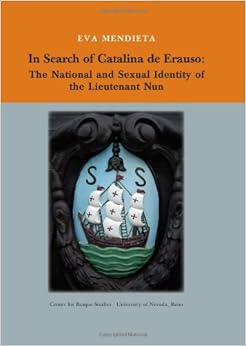
Humans have long understood that edges-whether they be of countries, between the spiritual and the secular, and indeed between categories of classification and study-are, in 1 Hopkins, Renaissance Drama on the Edge, 106.Ĭatalina de Erauso was born in 1585 to a Basque noble family who deposited her in a convent when she was four. 1 This fluctuation, however, was not confined merely to political boundaries. In the early modern period, political borders were often in flux, and people were 'strongly aware of the potentially shifting, unstable nature of borders, which are arbitrary and political'.


Erauso's Basque origin emerges as a key element for the understanding of her life, and her story becomes a privileged documentation of the Basque experience in America in the early modern era. In Erauso, binary oppositions such as male/female, saint/sinner, Basque/ Spaniard seem to be subsumed. Both the person and the text are characterized by their defying of categorization.

Her autobiography replicates the fluidity of her gender assignment, showing elements from different religious and secular writings. Erauso fled from a convent at age fifteen from then on, she dressed as a man and lived a life of travel, violence, and adventure. This chapter discusses recent scholarship on Catalina de Erauso-'the Lieutenant Nun'-one of the more controversial figures of the early seventeenth century.


 0 kommentar(er)
0 kommentar(er)
